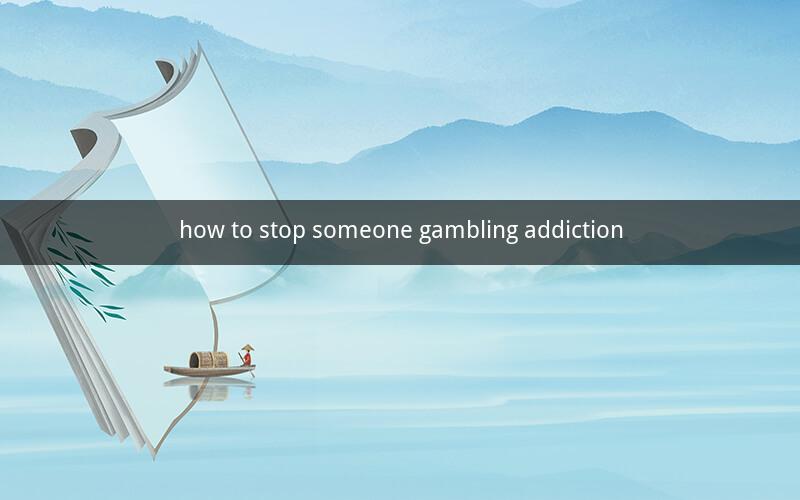
Table of Contents
1. Understanding Gambling Addiction
2. Identifying the Signs of a Gambling Problem
3. The Importance of Seeking Professional Help
4. Strategies for Stopping a Gambling Addiction
- 4.1. Building a Support System
- 4.2. Setting Realistic Goals
- 4.3. Learning to Manage Stress
- 4.4. Developing Healthy Coping Mechanisms
- 4.5. Avoiding Triggers
5. The Role of Technology in Gambling Addiction
6. The Impact of Gambling Addiction on Relationships and Finances
7. The Road to Recovery
8. Conclusion
1. Understanding Gambling Addiction
Gambling addiction, also known as problem gambling, is a behavioral disorder characterized by an inability to control the urge to gamble. It affects individuals of all ages, backgrounds, and socioeconomic statuses. Understanding the nature of gambling addiction is crucial in developing effective strategies for overcoming it.
2. Identifying the Signs of a Gambling Problem
Recognizing the signs of a gambling problem is the first step towards addressing it. Common signs include:
- Continual need to gamble more money to achieve the same level of excitement
- Feelings of restlessness or irritability when attempting to stop gambling
- Lying to family and friends about gambling activities
- Neglecting responsibilities at work, school, or home
- Borrowing money or selling possessions to fund gambling activities
- Experiencing financial, emotional, or legal problems as a result of gambling
3. The Importance of Seeking Professional Help
Seeking professional help is essential for overcoming a gambling addiction. Therapists, counselors, and support groups can provide guidance, support, and coping strategies. Professional help can also address underlying issues that contribute to gambling addiction, such as depression, anxiety, or trauma.
4. Strategies for Stopping a Gambling Addiction
4.1. Building a Support System
Creating a support system is crucial for overcoming a gambling addiction. This can include friends, family, therapists, and support groups. A strong support system can provide emotional support, encouragement, and accountability.
4.2. Setting Realistic Goals
Setting realistic goals is important for maintaining motivation and progress. Goals should be specific, measurable, achievable, relevant, and time-bound (SMART). For example, a goal could be to stop gambling for one month or to limit gambling to a certain amount of money per week.
4.3. Learning to Manage Stress
Stress can trigger the urge to gamble. Learning to manage stress through healthy coping mechanisms, such as exercise, meditation, or hobbies, can help reduce the urge to gamble.
4.4. Developing Healthy Coping Mechanisms
Developing healthy coping mechanisms is essential for overcoming a gambling addiction. These can include engaging in activities that provide pleasure and relaxation, such as reading, painting, or spending time with loved ones.
4.5. Avoiding Triggers
Identifying and avoiding triggers is crucial for preventing relapse. Triggers can include certain people, places, or situations that remind the individual of gambling. Avoiding these triggers can help maintain sobriety.
5. The Role of Technology in Gambling Addiction
Technology has made gambling more accessible than ever. Online gambling platforms, mobile apps, and social media can all contribute to the development and maintenance of a gambling addiction. It is important to be aware of the potential risks associated with technology and to use it responsibly.
6. The Impact of Gambling Addiction on Relationships and Finances
Gambling addiction can have a devastating impact on relationships and finances. It can lead to strained relationships with family and friends, financial ruin, and legal problems. Addressing the impact of gambling addiction on relationships and finances is an important part of the recovery process.
7. The Road to Recovery
The road to recovery from a gambling addiction is challenging but rewarding. It requires dedication, patience, and persistence. The journey involves addressing the underlying issues that contribute to gambling addiction, developing healthy coping mechanisms, and building a support system.
8. Conclusion
Overcoming a gambling addiction is possible with the right strategies and support. By understanding the nature of gambling addiction, identifying the signs of a problem, seeking professional help, and developing healthy coping mechanisms, individuals can take the first steps towards a healthier, more fulfilling life.
Questions and Answers
1. What are the signs of a gambling problem?
2. How can I build a support system?
3. What are some healthy coping mechanisms for managing stress?
4. How can I avoid triggers?
5. What is the role of technology in gambling addiction?
6. How can I set realistic goals for overcoming my gambling addiction?
7. What is the importance of seeking professional help?
8. What is the impact of gambling addiction on relationships?
9. How can I address the financial consequences of gambling addiction?
10. What is the road to recovery from a gambling addiction?